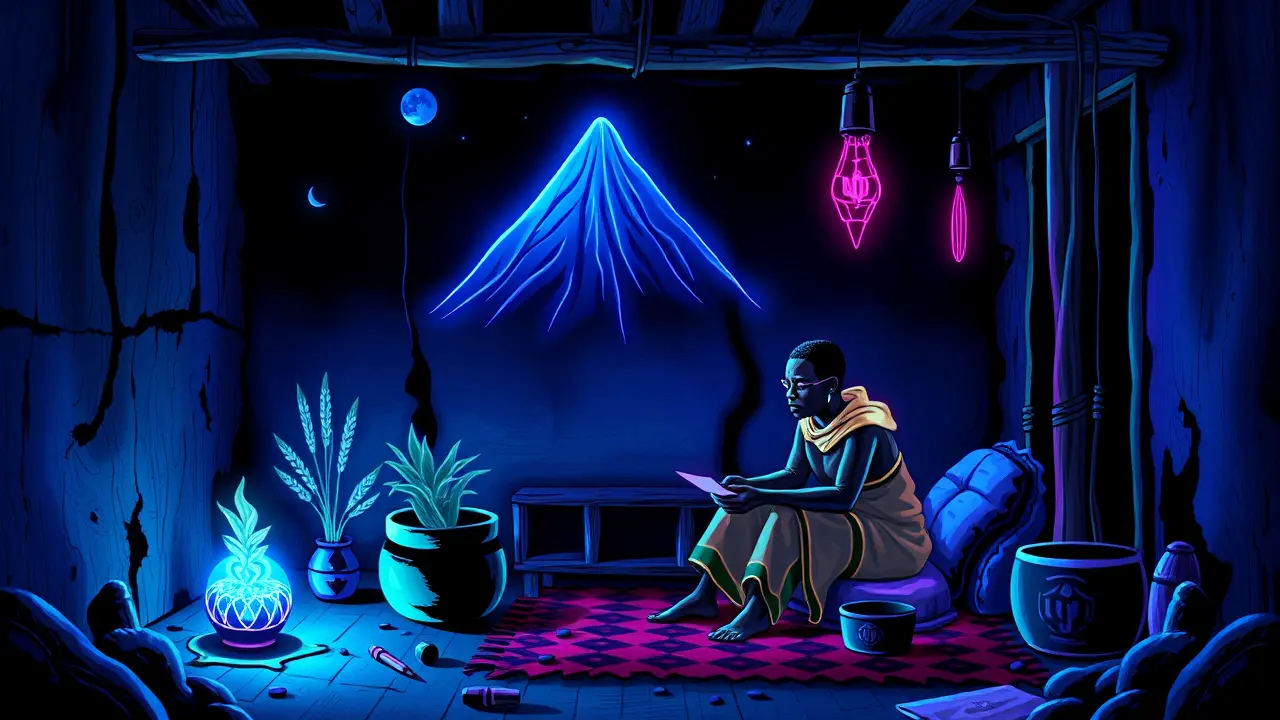South African Shamans Use Psychedelics for Treatment
In the shadow of Table Mountain, a quiet revolution in wellness is unfolding, one that speaks to a deep, almost primal yearning for connection in our fragmented modern world. I met with several traditional healers, or sangomas, in the townships surrounding Cape Town, and what I found was a practice thriving not in spite of its unregulated nature, but perhaps because of it.For individuals like Mama Ayanda, a sangoma with twenty years of experience, the use of plant-based psychedelics like iboga and psilocybin-containing mushrooms isn't a trendy therapeutic shortcut; it's a sacred technology, a bridge to the ancestral realm that has been passed down through generations. 'The West is just discovering what our grandparents knew,' she told me, her hands busy preparing a mixture, her gaze both gentle and unwavering.'These plants are not for fun. They are teachers.They show you the root of your sickness, which is often a sickness of the spirit—a disconnect from who you are and where you come from. ' Her consultation room, a small, brightly painted shack filled with the scent of impepho (African sage), stands in stark contrast to the sterile clinics of the city, yet it is here where many find a form of healing that biomedical models have failed to provide.Clients, a mix of local South Africans and a growing number of international seekers, come seeking relief from addiction, deep-seated trauma, and depression, conditions that have seen a dramatic rise in a country grappling with the complex legacies of apartheid and ongoing socioeconomic strain. The process is intense and communal, often involving days of ceremony, drumming, and guided introspection, a far cry from the isolated hour of talk therapy.Yet, this very lack of regulation is a double-edged sword, a theme that emerged in every conversation. There are no standardized dosages, no formal training certifications, and no oversight to protect vulnerable individuals from practitioners with dubious intentions.A young man I spoke to, who asked to be called Sipho, shared a harrowing experience with an unvetted healer that left him psychologically destabilized for weeks. 'You are putting your mind in someone else's hands,' he said, a cautionary note in his voice.'It is a powerful medicine, but without the right guide, it can break you. ' This tension between ancient tradition and modern risk management is the central drama playing out in Cape Town's informal healing economy.On one side, you have psychiatric researchers from the University of Cape Town cautiously observing these practices, noting the parallels to the burgeoning Western psychedelic renaissance with substances like MDMA and psilocybin being tested for PTSD and treatment-resistant depression. They see the potential but warn of the dangers of bypassing clinical safety protocols.On the other side, the sangomas view this clinical interest with a degree of skepticism, fearing the co-opting and commodification of their cultural heritage. The result is a fascinating, precarious, and deeply human ecosystem where profound healing and significant danger coexist, a testament to the universal search for meaning and the lengths to which people will go to mend a broken spirit.
It’s quiet here...Start the conversation by leaving the first comment.
